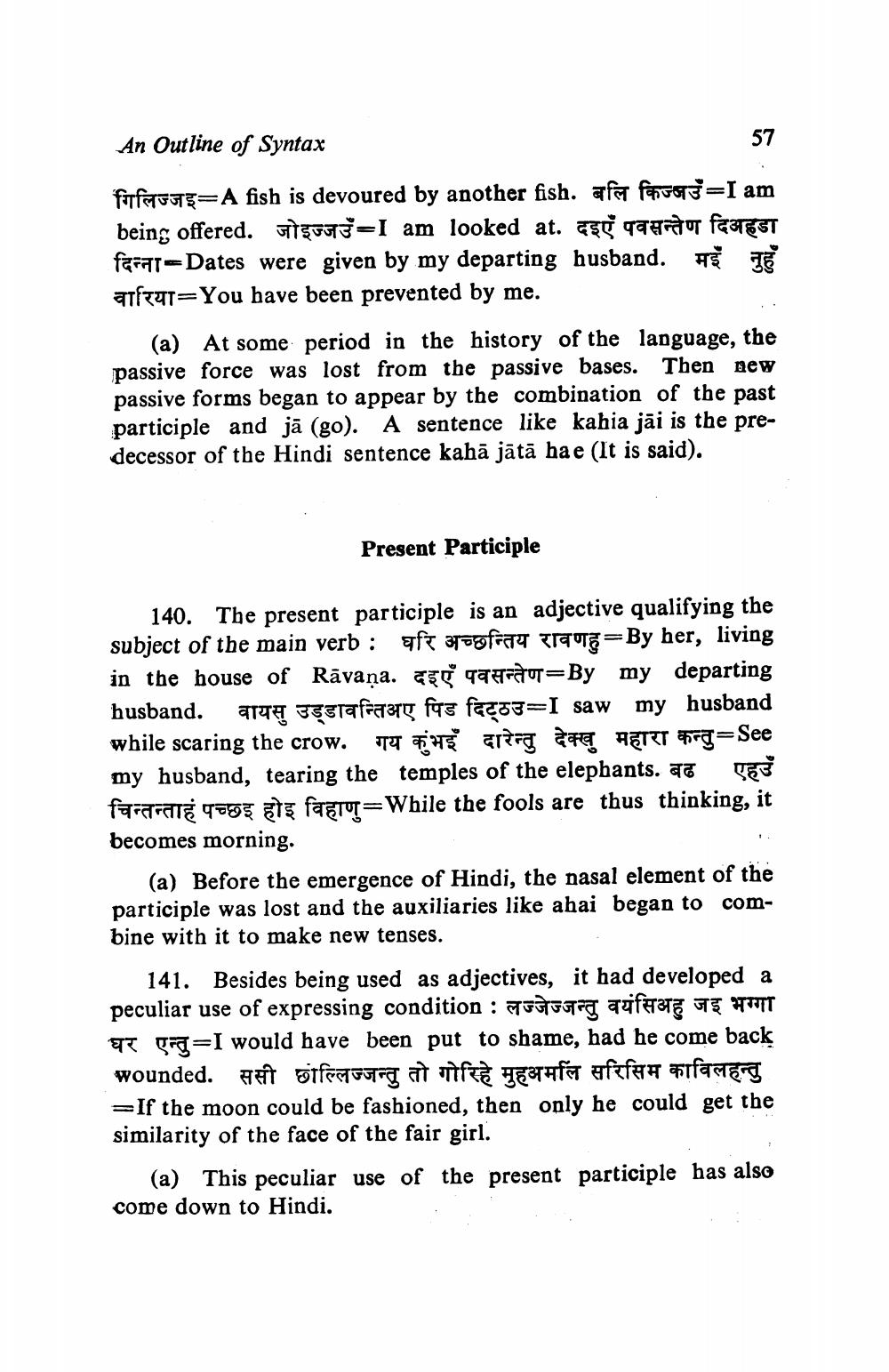________________
An Outline of Syntax forferegg=A fish is devoured by another fish. afar favors=I am being offered. जोइज्जउँ=I am looked at. दइएँ पवसन्तेण दिअहडा दिन्ना=Dates were given by my departing husband. मई नुहुँ atfo=You have been prevented by me.
(a) At some period in the history of the language, the passive force was lost from the passive bases. Then new passive forms began to appear by the combination of the past participle and jā (go). A sentence like kahia jāi is the predecessor of the Hindi sentence kahā jātā ha e (It is said).
Present Participle
140. The present participle is an adjective qualifying the subject of the main verb : oft 3togfrau arata=By her, living in the house of Rāvaņa. 758 Tahdo=By my departing husband. वायसु उड्डावन्तिअए पिड दिट्ठउ=I saw my husband while scaring the crow. गय कुंभई दारेन्तु देक्खु महारा कन्तु=See my husband, tearing the temples of the elephants. ad 565 चिन्तन्ताहं पच्छइ होइ विहाणु=While the fools are thus thinking, it becomes morning.
(a) Before the emergence of Hindi, the nasal element of the participle was lost and the auxiliaries like ahai began to combine with it to make new tenses.
141. Besides being used as adjectives, it had developed a peculiar use of expressing condition : लज्जेज्जन्तु वयंसिअहु जइ भग्गा of gag=I would have been put to shame, had he come back wounded. At gifstoure at the Af aff# Fifacere =If the moon could be fashioned, then only he could get the similarity of the face of the fair girl.
(a) This peculiar use of the present participle has also come down to Hindi.




